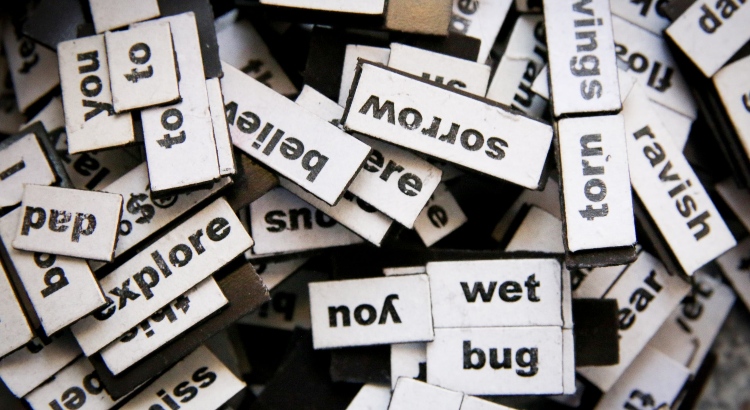Mastering English Pronunciation: The Challenge of "The Chaos" Poem
Do you want to test your English pronunciation skills? Try reading "The Chaos," a famous poem packed with over 800 examples of tricky English words. If you can pronounce each word correctly, you are speaking English better than most native speakers. This poem highlights the irregularities of English spelling and pronunciation.
Listen and Practice: Watch "The Chaos" Recitation
Hearing the poem read out loud can help you notice the difficult parts. Watch this recitation of "The Chaos" on YouTube by Jimmy Jams. Try to follow along and speak each line.
Who Was Gerard Nolst Trenité?
Gerard Nolst Trenité (1870–1946) was a Dutch writer who observed the quirks of English. Although he studied literature and law, he decided to teach English.
- Graduated as an English teacher in 1898
- Earned a doctorate in political science in 1901
- Worked as an English and civil engineering teacher in Haarlem
Trenité wrote several English books for students, including:
- The Nutshell. Shortest English grammar (1906)
- First Pictorial Word Book (1908)
- Drop Your Foreign Accent. Vocal Gymnastics (1909)
He was also known as "Charivarius," the name used for his popular column in De Groene Amsterdammer from 1903 to 1940. His work was well-known in the Netherlands, but linguists often saw him as a humorist rather than a scholar.
What Is "The Chaos"?
"The Chaos" is a poem written by Trenité to show the many irregularities in English spelling and pronunciation. It first appeared in his book Drop Your Foreign Accent. The poem gathers hundreds of words that do not follow standard spelling or sound patterns.
- The earliest version had 146 lines
- The most complete version has 247 lines (Spelling Society, 1993)
- Features more than 800 difficult words
The poem is structured in rhyming couplets and mixes words with similar spellings but different pronunciations. It is often used to show the difficulties language learners face with English.
Why Is English Pronunciation So Difficult?
English spelling and pronunciation have many exceptions. Even native speakers make mistakes. Some reasons include:
- Borrowed words from French, Latin, and Greek
- Silent letters, like in "knight" and "debt"
- Different spellings for the same sound (for example, "break," "steak," "brake")
- Words that look the same but sound different ("tear" as in to rip, and "tear" as in the liquid)
A study found non-native speakers often outperformed native speakers in pronunciation tests with complex vocabulary (British Council, 2018).
Can You Read "The Chaos" Correctly?
Here is a short part of "The Chaos." Try reading it out loud:
Dearest creature in creation
Studying English pronunciation,
I will teach you in my verse
Sounds like corpse, corps, horse and worse.
I will keep you, Susy, busy,
Make your head with heat grow dizzy.
Tear in eye, your dress you'll tear,
So shall I! Oh, hear my prayer.
Just compare heart, beard and heard,
Dies and diet, lord and word,
Sword and sward, retain and Britain.
(Mind the latter, how it's written).
- Notice the different sounds in "horse" and "worse."
- Words like "sword" and "sward" look similar but sound different.
- English rules often have many exceptions.
Common Pronunciation Pitfalls
Here are some tricky English words with unusual pronunciation:
- Though, tough, through, thought
- Pint, mint, lint
- Colonel (sounds like "kernel")
- Receipt, recipe
- Island (the "s" is silent)
"The Chaos" poem serves as a reminder that English learners–and even native speakers–face these traps daily.
How Transcription and Language Services Can Help
If you are learning English or need clear text versions of audio or video, transcription is essential. Services like transcription help convert spoken English into accurate text, making it easier to practice pronunciation.
- Use automated transcription for quick audio-to-text conversion
- Subscribe to AI transcription for regular needs
- Need captions? Check out closed caption and subtitling services
- For accuracy, get transcription proofreading help
- Expand your reach with text translation and audio translation services
Learn more about transcription pricing and captioning rates.
Ready to get your audio or video transcribed? Order transcription or order captions now to make your content accessible.
Conclusion: Embrace the Challenge with GoTranscript
English pronunciation, as "The Chaos" poem proves, is unpredictable and tough. If you want to improve your language skills, or need help turning complex spoken English into easy-to-read text, GoTranscript offers reliable solutions. From transcription services to translations and subtitles, GoTranscript makes spoken English clear and accessible for everyone.



















 Verified Order
Verified Order